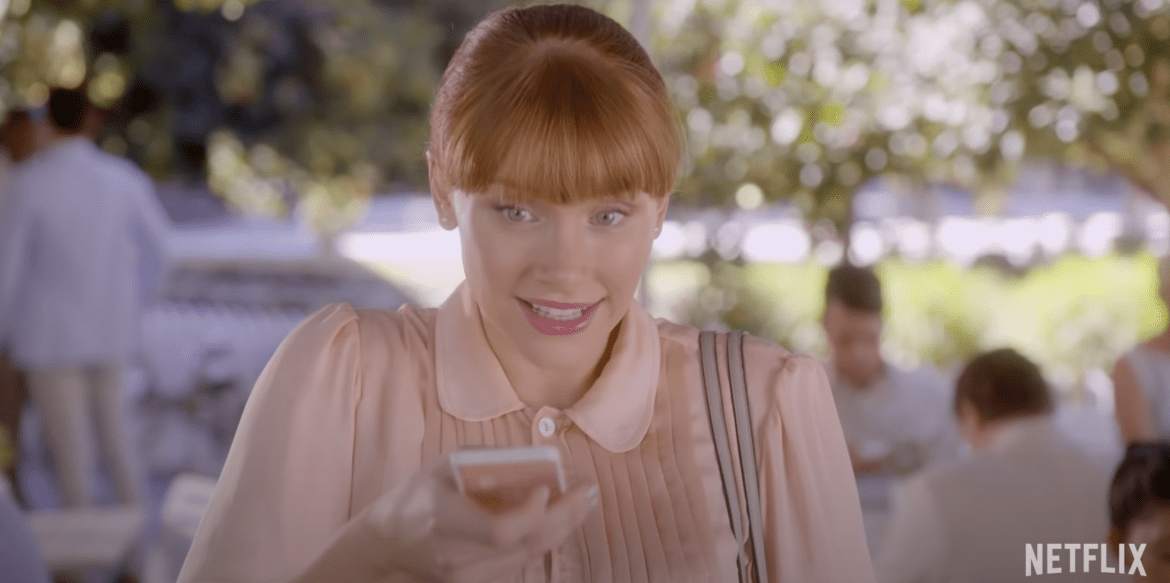Charlie Brooker’s series Black Mirror is becoming more and more our everyday reality.
His dystopian TV series, first aired in 2011, portrays how advancing technology filters into our personal lives and behaviours, often with negative consequences.
Thirteen years since the first episode aired, it seems that technology, TikTok in particular, is creating a scary and sometimes disturbing world.
The video-sharing platform has taken over social media. What started off as a fun, “let’s make up dance routines” during Covid to kill-your-boredom type of app, has quickly turned into a space for people to share every aspect of their lives.
TikTok content can take a toll on your mood, your productivity and your mental well-being, all depending on what the algorithm decides to show you. I found myself scrolling for hours, watching nearly three-minute clips about the Idaho murders of four young students last November. It left me feeling on edge and anxious as TikTokers warned people to stay alert, even if you were thousands of miles away in an other country.
You can quickly find yourself in a deep hole: the content can consume you to a breaking point where it’s no longer serving your best interests to watch it. The short-style videos are addictive and difficult to shut off in comparison to a longer video you would find on YouTube.
The Digital 2023 Global Overview Report, produced in partnership with Meltwater and We Are Social, released in January of this year, found that UK users on average spend more than 27 hours per month on the platform.
If your algorithm is on the wrong side of TikTok, that’s 27 hours of detrimental content you’re consuming per month.
Recently, it seems posting on TikTok also qualifies you as a detective to solving murders and missing people cases.
The media recently came under fire after the disappearance of Nicola Bulley as the press and members of the public misquoted and vilified friends and family.
“It saddens us to think that one day we will have to explain to [Bulley’s young children] that the press and members of the public accused their dad of wrongdoing,” said a spokesperson for the family.
The unfair frenzy that surrounded Bulley’s disappearance forced the police to put in place a dispersal order after TikTok and YouTube influencers arrived on the scene, intimidated local people and caused a disturbance to the police.
TikTok released a statement following Bulley’s family’s distress. A spokesperson said: “We do not tolerate bullying or harassment on TikTok and remove content that violates our policies.”
My TikTok, however, was filled with people claiming they just had a ‘feeling’ about what happened. They continued to add to the misinformation, which eventually just grew into more and more conspiracy theories.
It was disturbing and uncomfortable watching my ‘For You’ page constantly showing these videos of rumours and speculation.
It felt as though people were so desensitised from what was actually happening that they forgot this was a serious and heartbreaking situation: real people were involved and the “TikTok detectives” actually had no facts to what they were claiming.
This isn’t the first time these misinformation claims have happened through social media. If we remember the Idaho murders in America of four students, the two remaining housemates who survived were put under a magnifying glass. Conspiracy theories once again consumed my social media for two to three months when a suspect was arrested.
This reoccurring issue of conspiracy theories seems to jump from platform to platform, with TikTok its newest victim. The difference is now the structure of the app is short snappy videos that don’t take a lot of concentration to watch. It is easier and more accessible to consume rather than reading a long news piece.
TikTok is already banned in a number of countries such as Indonesia, Bangladesh and India. On February 28, the US government announced its orders of all its federal employees to remove TikTok from their government-issued phones to protect confidential data.
Additionally, Conservative MP Alicia Kerns has openly warned against using the app in UK, claiming the platform is exposing users’ personal data to hostile threats.
It’s time for everyone, as a society, to come out of the unrealistic bubble of TikTok and come back to earth. We need to be aware of what we are sharing and know that our online actions have real life consequences, such as the trauma Nicola Bulley’s family had to face due to social media on top of her unfortunate death.
Although the app is used for many good and educational reasons, there is an extremely and increasingly dark side that is appearing.
The growing access we have to technology, people’s opinions and misinformation being shared is worrying if in the wrong hands or young, vulnerable minds.
When we close the app and decide to put our phones down for the night, the Black Mirror is still staring back at us. It’s constant and it’s time to decide: when is enough, enough?





